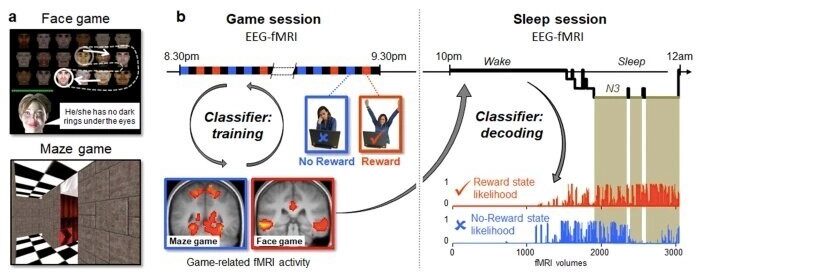Researchers at University of Geneva in Switzerland have carried out a study investigating how the brain selects memories that will be reprocessed during sleep. Their findings, presented in a paper published in Nature Communications, suggest that the brain tends to prioritize the consolidation of memories or life experiences with high motivational relevance, namely those associated with rewards, reports Medical Xpress. “From an evolutionary perspective, individuals must retain information that promotes survival, such as avoiding dangers, finding food, or obtaining praise or money,” the researchers wrote. “Here, we test whether neural representations of rewarded (compared to non-rewarded) events have priority for reactivation during sleep.” The researchers carried out their experiments on 26 healthy participants. The participants were asked to play two games. The first, dubbed the face game, was specifically designed to activate the brain network specialized in the processing of face information. The second, dubbed the maze game, is a game that activates brain regions involved in spatial navigation. In the face game, participants had to identify a specific face based on a series of cues that were provided to them. In the maze game, they were asked to find the exit of a maze, using some guiding arrows. Using functional MRI and brain-decoding techniques, Virginie Sterpenich and her colleagues at University of Geneva showed that specific patterns of brain activity observed in the participants while they were awake spontaneously re-emerged during slow-wave sleep. These patterns were known to be associated with receiving a reward for positive behaviour.
https://medicalxpress.com/news/2021-08-rewarded-life-replayed.html


